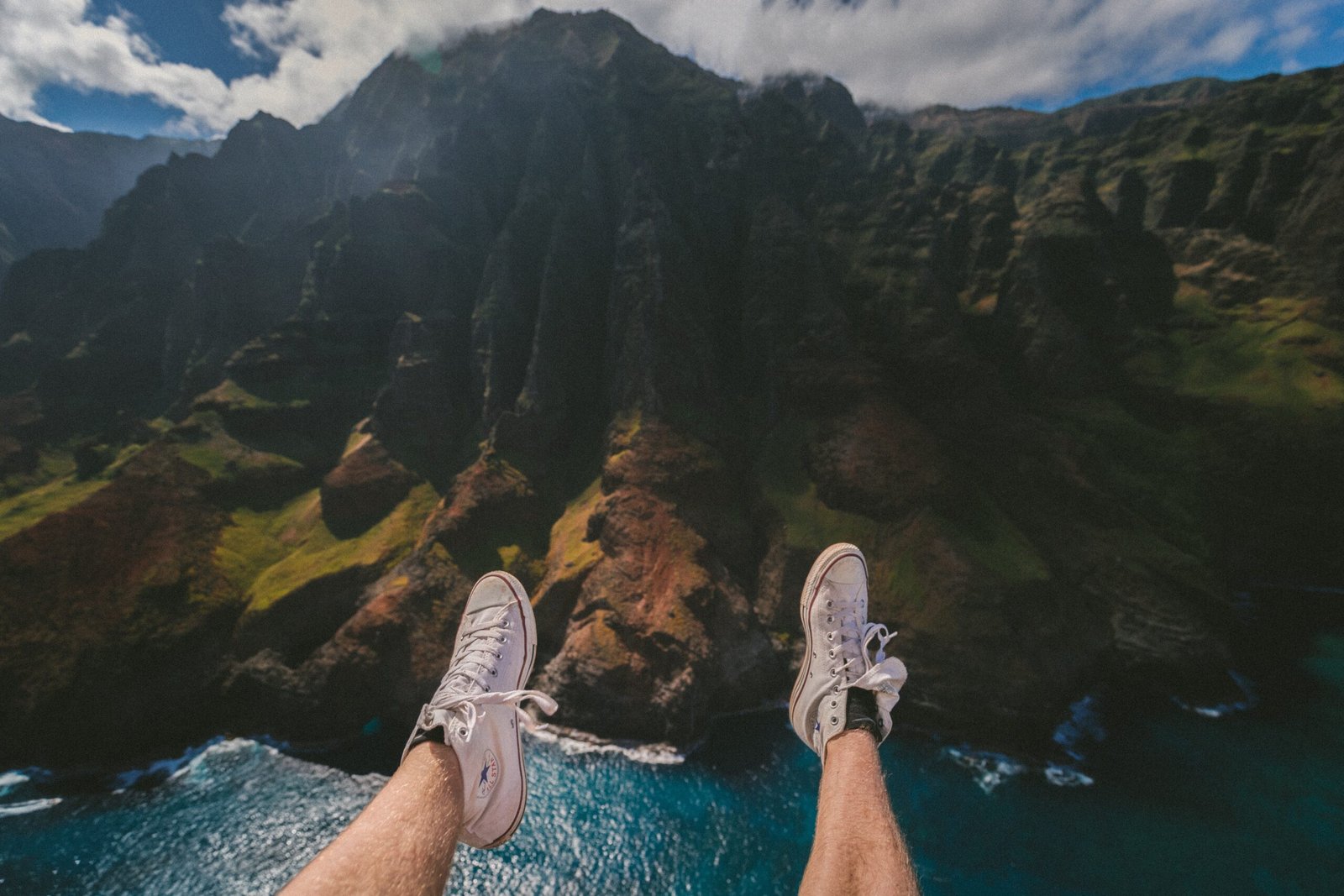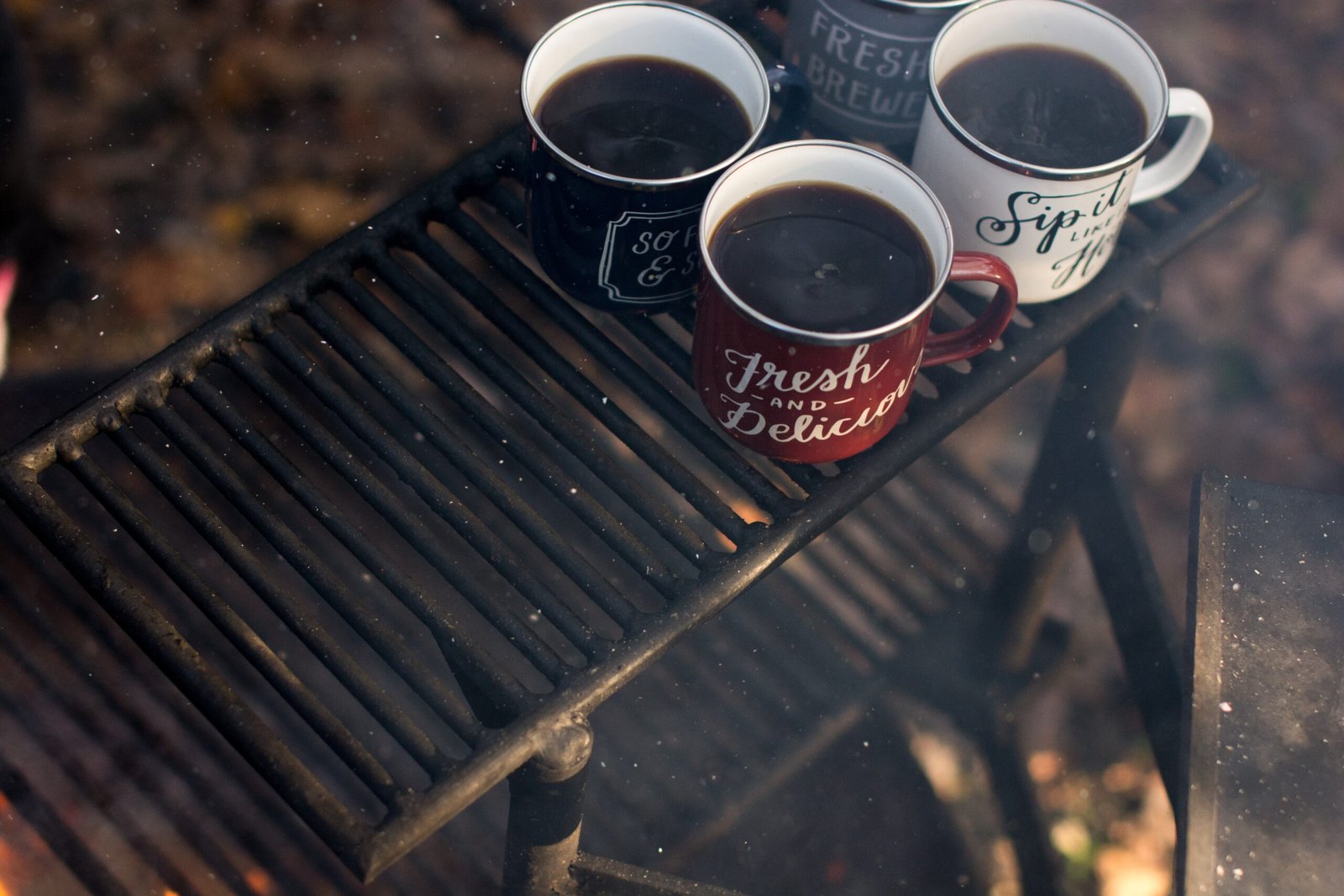With summer just around the corner, many individuals are eagerly preparing for their upcoming camping adventures. Camping has long been celebrated for its ability to enhance happiness and promote a longer lifespan by immersing individuals in the beauty and serenity of nature. However, for those new to camping, it is crucial to familiarize themselves with outdoor etiquette and the principles of Leave No Trace. Adequate planning is also essential to ensure a successful trip, such as researching the chosen camping area and monitoring weather conditions. Luckily, several websites, including Campspot, ReserveAmerica, The Dyrt, and Recreation.gov, can assist in finding the perfect campsite. Moreover, novice campers need not invest in expensive gear; starting with fundamental, reliable equipment is sufficient. Brands like Stoic, REI Co-op, and Kelty offer excellent value camping gear. When selecting a sleeping bag, it is vital to consider temperature ratings. For warmer weather camping, using a blanket rather than a sleeping bag may be a viable alternative. By following these ten tips, campers can look forward to a successful and enjoyable summer camping trip.
Check Other Tutti Camping Articles
1. Research the area
When planning a camping trip, it is essential to conduct thorough research about the chosen location. This step ensures that campers are well-informed about regulations, permits, and any specific rules or restrictions that may apply. By familiarizing themselves with the area, campers can avoid any unwanted surprises and ensure a smooth camping experience.
1.1 Check regulations and permits
Before embarking on a camping adventure, it is important to check the regulations and obtain any necessary permits. Different regions and parks may have specific guidelines, such as restrictions on campfire usage or the number of people allowed per campsite. By understanding and complying with these regulations, campers can help preserve the natural beauty of the area and avoid potential penalties.
1.2 Gather information about the location
To make the most of a camping trip, campers should gather comprehensive information about the chosen location. This includes knowing the terrain, facilities available, and any notable landmarks or attractions nearby. Researching the area allows campers to plan their activities accordingly and ensures they are well-prepared for the environment they will be camping in.
1.3 Learn about local wildlife and plants
To fully appreciate the natural surroundings and minimize potential dangers, campers should educate themselves about the local wildlife and plants in the area. This knowledge helps campers identify potential hazards, such as poisonous plants or dangerous animals, and take appropriate precautions. It also allows campers to have a deeper understanding and respect for the ecosystem they are visiting.
2. Check weather conditions
To ensure a comfortable and safe camping experience, it is crucial to stay updated on the weather conditions. Proper preparation based on weather forecasts can prevent discomfort and unexpected challenges that may arise during the trip. By monitoring the weather, campers can adjust their plans accordingly and make informed decisions about their activities.
2.1 Monitor the forecast
Campers should regularly check weather forecasts leading up to their camping trip. Paying attention to factors such as temperature, precipitation, and wind conditions can help campers anticipate any changes in weather patterns and plan accordingly. It is advisable to use reliable weather forecast sources, such as national or local meteorological services, for accurate and up-to-date information.
2.2 Pack accordingly
Based on the weather forecast, campers should pack appropriate clothing and gear. Lightweight and breathable clothing is ideal for warm weather, while layered clothing is recommended for cooler temperatures. Additionally, campers should pack rain gear, such as waterproof jackets or ponchos, to stay dry during unexpected rain showers. Proper footwear, such as sturdy hiking boots, should also be chosen to provide comfort and support in varying terrains.
2.3 Be prepared for unexpected weather changes
Even with thorough weather monitoring, unexpected changes in weather can still occur. Campers should be prepared for these changes by packing extra clothing layers, blankets, and additional shelter options. It is important to prioritize safety and be equipped to handle adverse weather conditions, such as sudden temperature drops or severe storms.
3. Choose the right campsite
Selecting the right campsite is crucial for a successful camping experience. Factors such as personal preferences, available amenities, and reviews from previous campers should all be considered in the decision-making process.
3.1 Determine the type of campsite you prefer
Campers should consider the type of camping experience they desire when choosing a campsite. Some may prefer well-equipped campgrounds with amenities such as showers, toilets, and electricity, while others may prefer more remote and primitive campsites for a back-to-nature experience. Identifying personal preferences will help narrow down the options and choose a campsite that aligns with individual preferences and expectations.
3.2 Consider the amenities available
For campers who value certain amenities, it is essential to research and choose a campsite that fulfills those needs. Amenities can vary widely between campsites and may include picnic tables, fire pits, potable water sources, and access to hiking trails or recreational activities. By considering the desired amenities, campers can enhance their camping experience and ensure their comfort and convenience throughout their stay.
3.3 Read reviews and gather feedback
One effective way to gain insight into the quality of campsites is by reading reviews and gathering feedback from previous campers. Online platforms, such as Campspot, ReserveAmerica, The Dyrt, and Recreation.gov, provide valuable information and reviews from experienced campers. By learning from the experiences of others, campers can make more informed decisions and choose campsites that have a good reputation for quality and customer satisfaction.
4. Plan your meals
Proper meal planning is essential to ensure that campers have nutritious and enjoyable meals during their camping trip. With careful consideration of dietary needs, logistics, and available cooking equipment, campers can create meal plans that meet their requirements and make mealtime a pleasant experience.
4.1 Make a meal plan
Before heading to the campsite, campers should create a meal plan that includes breakfast, lunch, dinner, and snacks. This plan should take into account dietary restrictions, preferences, and the availability of cooking facilities and equipment. By planning ahead, campers can ensure they have the necessary ingredients and avoid last-minute scrambling for meals.
4.2 Pack non-perishable food
To minimize the risk of food spoilage, campers should pack non-perishable food items for their camping trip. Canned goods, dried fruits, nuts, granola bars, and dehydrated meals are examples of non-perishable foods that can provide sustenance throughout the camping trip. It is important to choose foods that are easy to store, require minimal preparation, and provide sufficient nutrition for the activities planned.
4.3 Bring cooking equipment and utensils
Campers should bring the necessary cooking equipment and utensils to prepare their meals at the campsite. Basic items such as a camping stove, pots, pans, and cooking utensils are essential for cooking a variety of meals. Additionally, items like plates, bowls, utensils, and cups should be packed to facilitate a comfortable dining experience. It is important to choose durable and lightweight options that are suitable for outdoor cooking.
5. Pack the essentials
Proper packing is key to a comfortable and enjoyable camping trip. By ensuring the inclusion of essential items, campers can have peace of mind knowing they are well-prepared for their outdoor adventure.
5.1 Tent and sleeping gear
A suitable tent, along with sleeping bags or sleeping pads, is essential for a good night’s rest while camping. Choosing a tent based on the number of campers and weather conditions is important to ensure adequate space and protection. Sleeping bags or sleeping pads should be selected based on their temperature ratings to provide optimal comfort and warmth throughout the night.
5.2 Clothing and personal items
Campers should pack appropriate clothing for the duration and anticipated weather conditions of the camping trip. It is important to include items such as sturdy hiking boots, comfortable and moisture-wicking clothing, extra layers for varying temperatures, and swimwear if applicable. Personal items such as toiletries, sunscreen, insect repellent, and a headlamp or flashlight should also be included for personal hygiene and safety.
5.3 First aid kit and emergency supplies
Safety should always be a top priority when camping, and packing a well-stocked first aid kit is crucial. The first aid kit should contain essential items such as adhesive bandages, gauze pads, antiseptic ointment, pain relievers, and any personal medications. In addition to the first aid kit, campers should also pack emergency supplies such as a whistle, compass, emergency blanket, and a multipurpose tool. These items can be invaluable in case of unforeseen emergencies or incidents during the camping trip.
6. Practice Leave No Trace principles
Responsible camping involves minimizing one’s impact on the environment and respecting the natural surroundings. By following Leave No Trace principles, campers can help preserve the beauty and integrity of the camping area for future generations to enjoy.
6.1 Minimize campfire impact
When enjoying a campfire, it is important to follow guidelines to minimize its impact on the environment. Campers should make use of designated fire pits or rings, use only locally sourced firewood, and ensure the fire is fully extinguished before leaving the campsite. Additionally, it is important to be mindful of the size and intensity of the fire to prevent accidental wildfires and damage to the surrounding vegetation.
6.2 Dispose of waste properly
Proper waste disposal is crucial to maintaining a clean and healthy camping environment. Campers should pack out their trash and litter, leaving no trace behind. It is essential to separate recyclable items and dispose of them in designated recycling bins, if available. Waste, including food scraps, should be properly contained and disposed of in accordance with park regulations to minimize the attraction of wildlife and maintain the overall cleanliness of the campsite.
6.3 Respect wildlife and natural surroundings
Campers should observe and appreciate wildlife from a safe distance, respecting their natural behavior and habitat. Feeding or approaching wild animals can disrupt their natural patterns and may pose risks to both humans and animals. It is important to adhere to any specific guidelines or regulations regarding wildlife encounters in the area and refrain from removing or damaging any natural features or artifacts.
7. Arrive early and set up efficiently
Arriving early to the campsite and setting up efficiently can contribute to a more relaxed and enjoyable camping experience. By planning the route and travel time, campers can ensure a smooth journey and have ample time to set up camp before darkness falls.
7.1 Plan your route and travel time
Campers should plan their route in advance, considering factors such as distance, road conditions, and any potential traffic or construction delays. By allowing for extra travel time, campers can account for unforeseen circumstances and avoid rushing to set up camp. It is advisable to familiarize oneself with the directions to the campsite and have a backup plan in case of any unexpected road closures or detours.
7.2 Set up camp before it gets dark
To ensure a hassle-free camping experience, campers should aim to arrive at the campsite with ample daylight remaining. Setting up camp during daylight hours allows for better visibility and reduces the chances of encountering difficulties or overlooking important details. It is important to efficiently pitch the tent, arrange sleeping gear, and set up any additional equipment such as chairs or cooking stations to create a comfortable and functional campsite.
7.3 Organize your campsite for convenience
Upon setting up camp, organizing the campsite for convenience is essential. This includes designating areas for cooking, relaxing, and sleeping. Keeping items within easy reach and maintaining a clean and clutter-free campsite allows for a more enjoyable and efficient camping experience. It is also important to secure any food or scented items properly to prevent attracting wildlife to the campsite.
8. Stay safe while camping
Safety should always be a priority during a camping trip. By being aware of potential hazards and following necessary safety guidelines, campers can ensure their well-being and that of others in the campsite.
8.1 Be aware of potential hazards
Campers should be aware of the potential hazards that may exist in the camping area. These can include but are not limited to uneven terrain, wildlife encounters, poisonous plants, and adverse weather conditions. By being vigilant and informed, campers can take necessary precautions to avoid accidents and stay safe throughout their camping trip.
8.2 Follow fire safety guidelines
When dealing with campfires or cooking equipment, it is crucial to follow fire safety guidelines. Campers should always adhere to any fire restrictions in the area and use caution when handling open flames. Properly extinguishing campfires before leaving the campsite and never leaving them unattended are essential practices to prevent wildfires and ensure the safety of the campers and surrounding environment.
8.3 Use insect repellent and protect yourself from the sun
To protect against insect bites and potential insect-borne diseases, campers should use effective insect repellents. Applying repellent before engaging in outdoor activities, particularly during dusk and dawn when insects are most active, can significantly reduce the risk of mosquito or tick bites. Additionally, campers should protect themselves from the sun’s harmful rays by using sunscreen, wearing protective clothing, and seeking shade during peak sun hours to prevent sunburn and potential heat-related illnesses.
Check Other Tutti Camping Articles
9. Have fun outdoor activities
Camping offers a multitude of outdoor activities that allow campers to fully immerse themselves in nature. By exploring hiking trails, engaging in water activities, and enjoying campfire activities, campers can create lasting memories and embrace the beauty of the great outdoors.
9.1 Explore hiking trails and nature
One of the most popular activities while camping is hiking. Campers should take advantage of nearby hiking trails and immerse themselves in the natural beauty of the surroundings. By wearing appropriate footwear and clothing, bringing a map or guidebook, and carrying essentials such as water and snacks, campers can embark on memorable hikes and discover breathtaking landscapes, flora, and fauna.
9.2 Try fishing or kayaking
For those inclined towards water activities, camping by a lake or river opens up opportunities for fishing, kayaking, or canoeing. Campers should research and adhere to local fishing regulations, and if necessary, obtain the appropriate licenses. Bringing fishing gear, kayaks, or canoes allows campers to engage in these relaxing and rewarding activities while enjoying the serenity of the water.
9.3 Engage in campfire activities and stargazing
A campfire provides the perfect setting for bonding, storytelling, and enjoying campfire activities. Whether roasting marshmallows, singing songs, or playing games, these activities can enhance the camping experience and create cherished memories. Additionally, after the sun sets, campers can marvel at the beauty of the night sky by engaging in stargazing. Away from city lights, campers can witness a dazzling display of stars and constellations that can be both awe-inspiring and educational.
10. Leave the campsite clean
As responsible campers, it is important to leave the campsite in the same or better condition than when it was found. By practicing proper cleaning and waste disposal techniques, campers contribute to maintaining the pristine condition of the camping area.
10.1 Pick up any garbage and litter
Before leaving the campsite, campers should thoroughly clean the area and ensure all trash and litter is removed. This includes picking up any remnants of food, beverage containers, and packaging. Leaving the campsite clean not only preserves the natural beauty but also prevents wildlife from being attracted to the campsite due to the presence of leftover food or litter.
10.2 Clean dishes and utensils
Campers should clean all dishes, utensils, and cooking equipment used during the camping trip. Proper cleaning helps prevent the growth of bacteria and maintains the longevity of the camping gear. Biodegradable soap and warm water can be used to clean dishes, and any leftover food scraps should be properly disposed of to avoid attracting wildlife.
10.3 Pack out what you pack in
To ensure the campsite is left in its original condition, campers should practice the principle of “leave no trace” by packing out everything they brought in. This includes all waste, personal belongings, and any other items that were brought to the campsite. By taking responsibility for one’s belongings and leaving the campsite as pristine as possible, campers contribute to the preservation of the natural environment and the enjoyment of future campers.
In conclusion, a well-planned camping trip can be a rewarding and rejuvenating experience. By conducting thorough research, checking weather conditions, choosing the right campsite, planning meals, packing the essentials, practicing Leave No Trace principles, setting up efficiently, staying safe, engaging in outdoor activities, and leaving the campsite clean, campers can ensure a successful and enjoyable camping adventure. With proper preparation, respect for nature, and responsible camping practices, campers can experience the joy and benefits of being immersed in the great outdoors.









